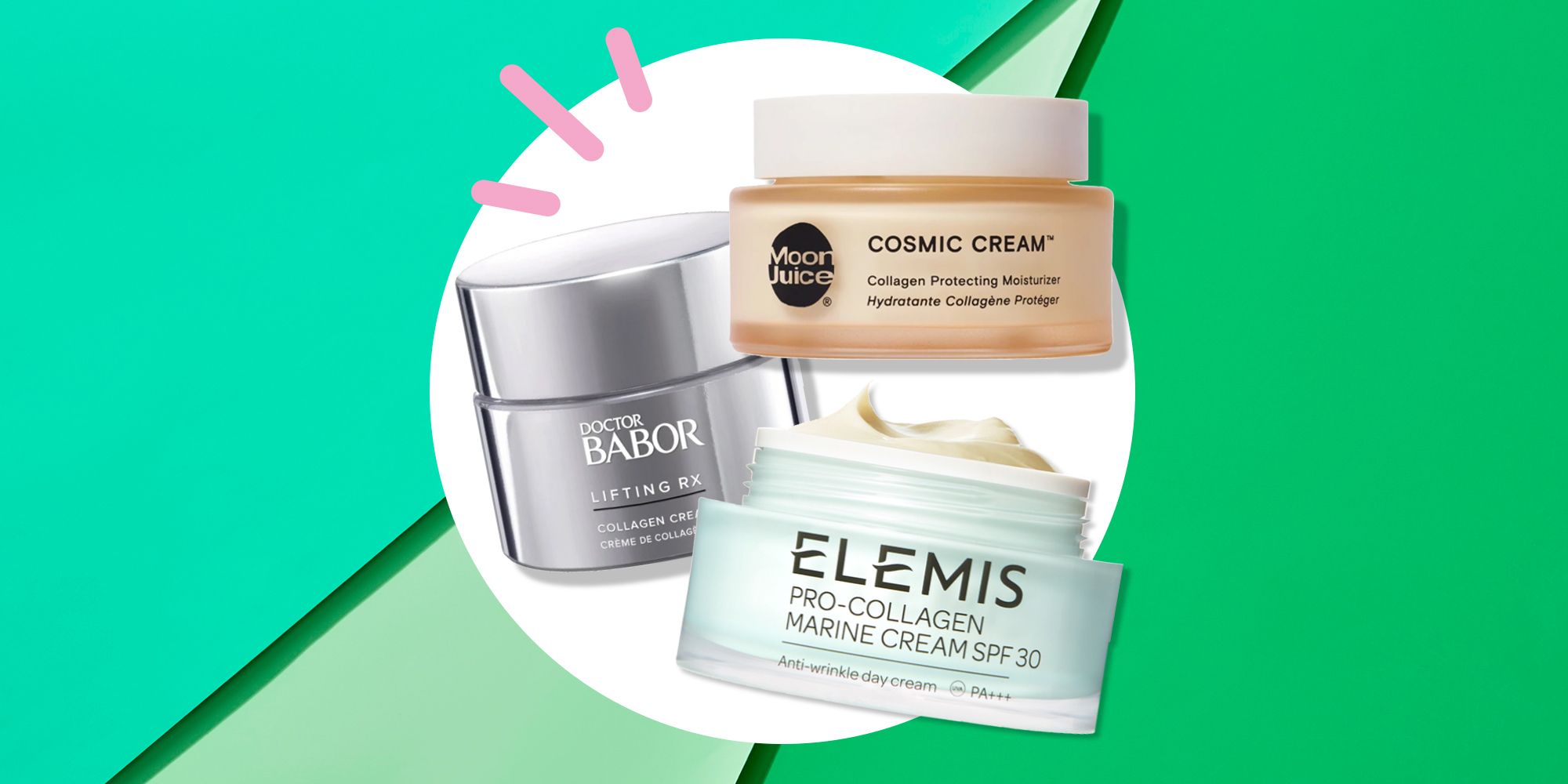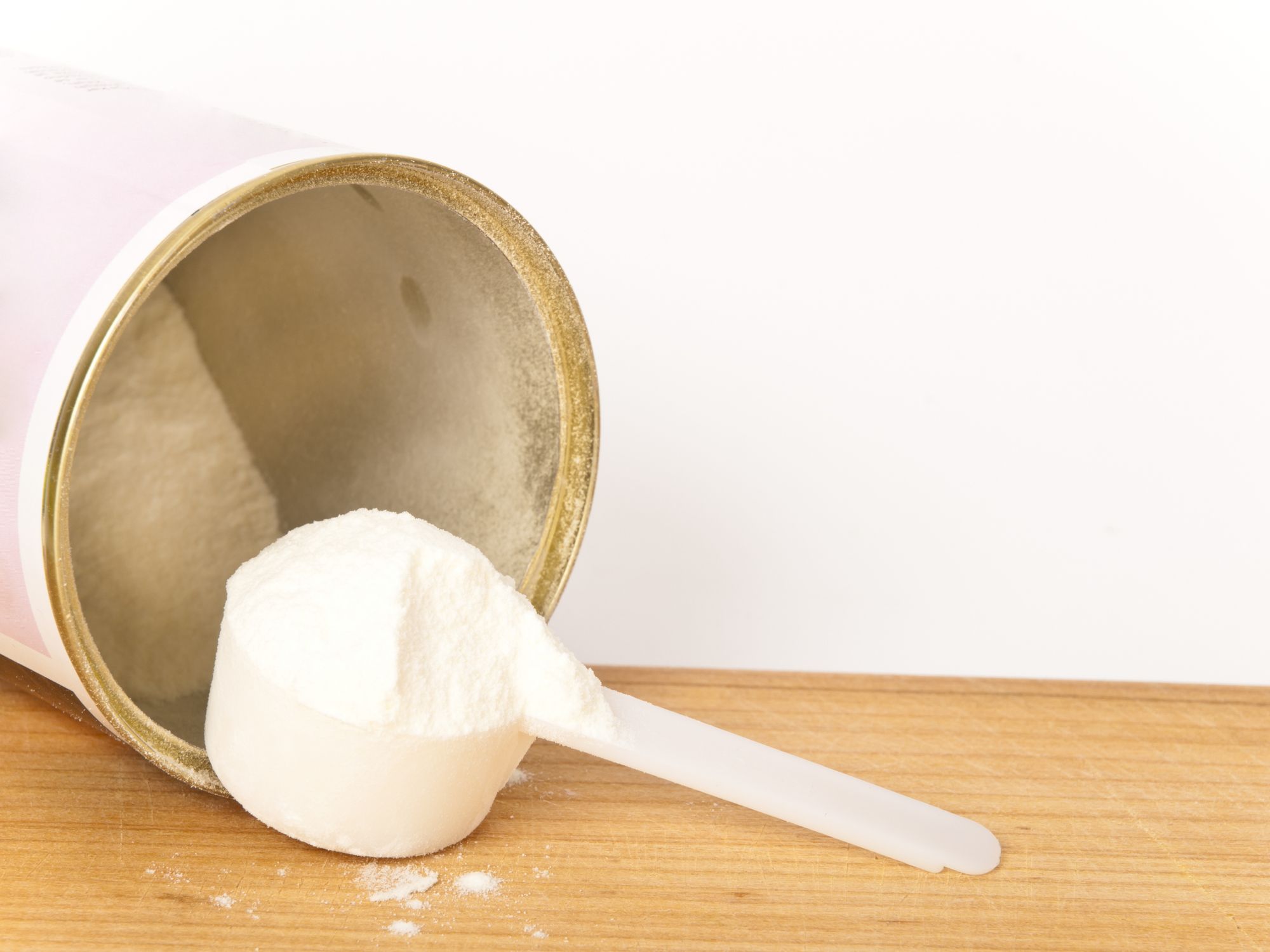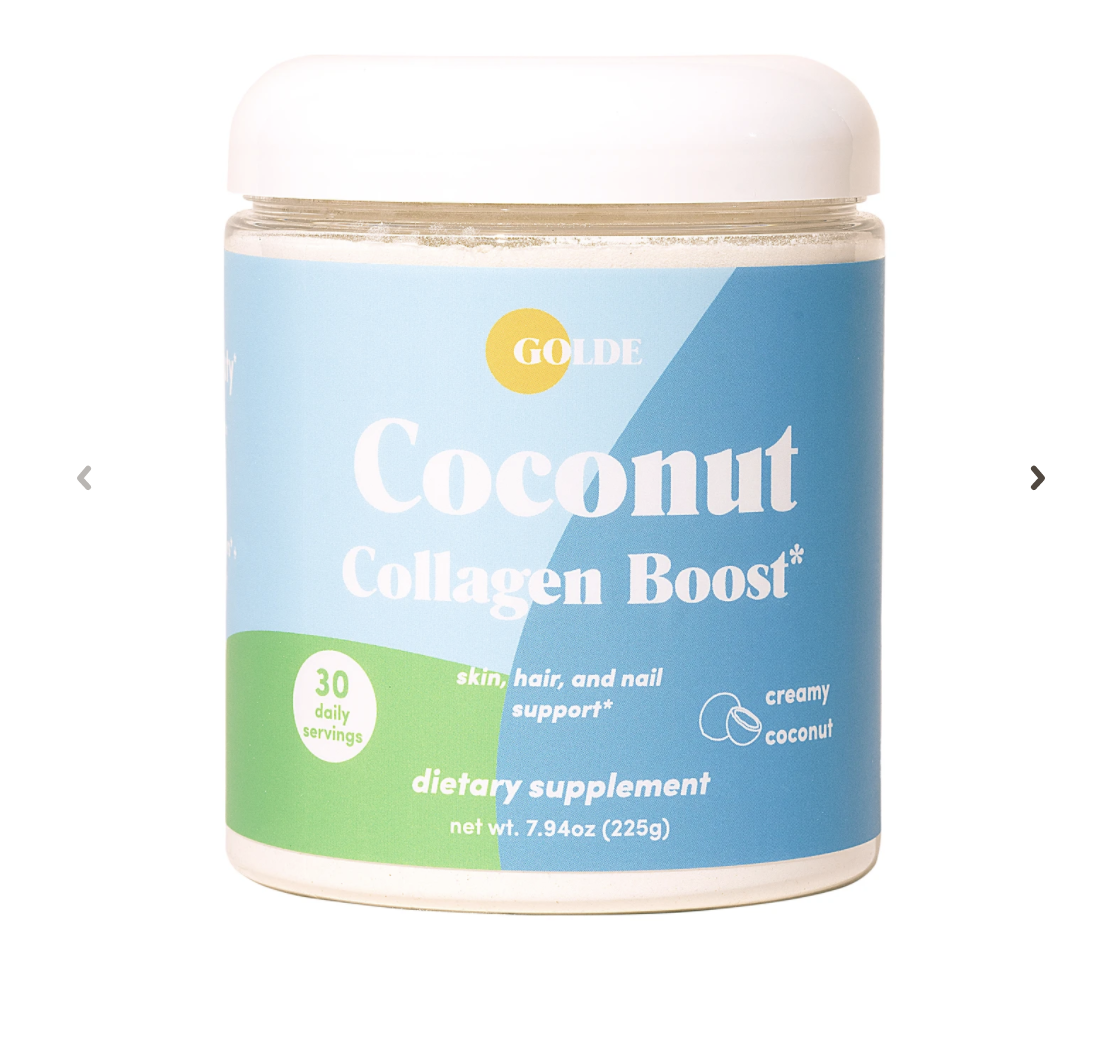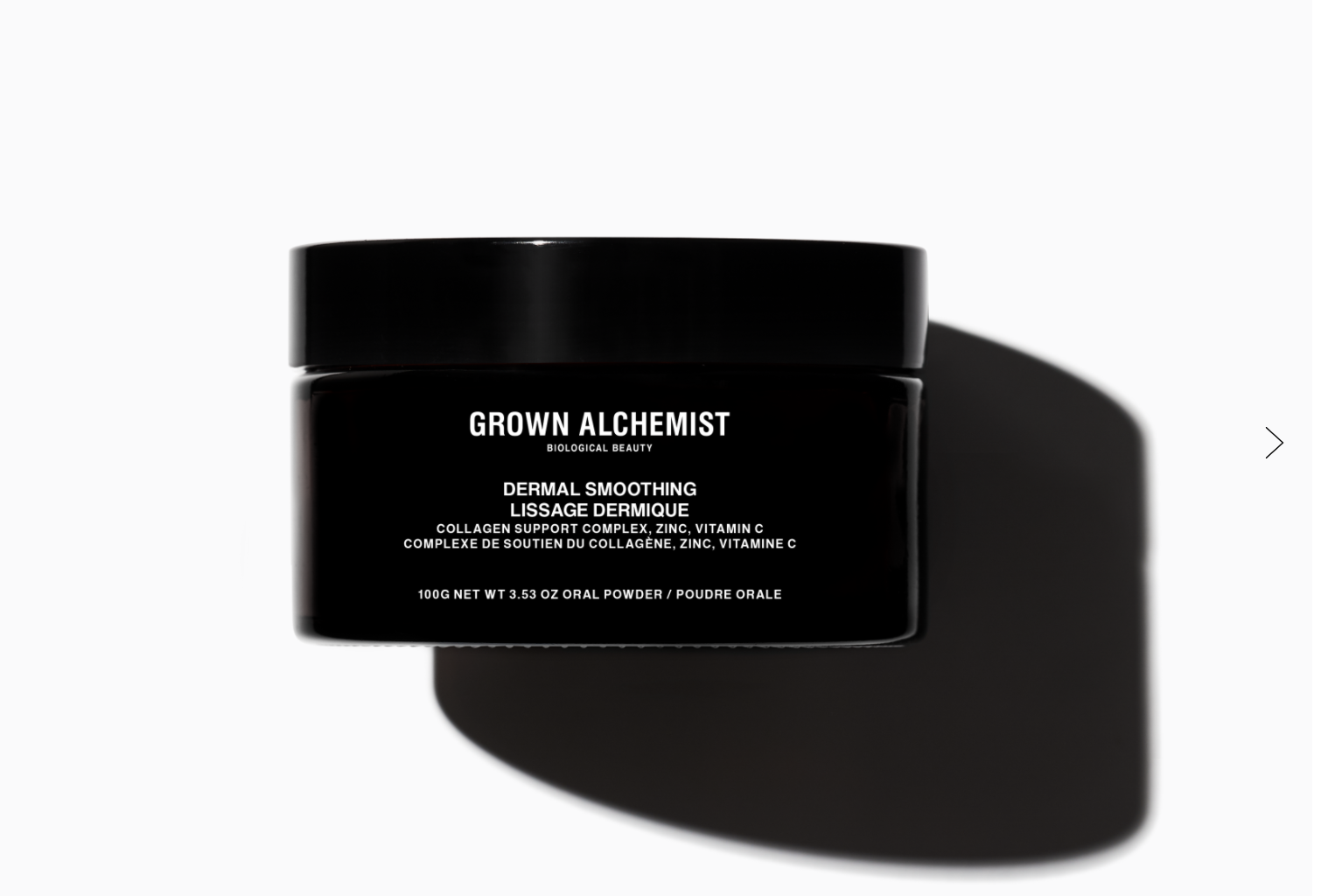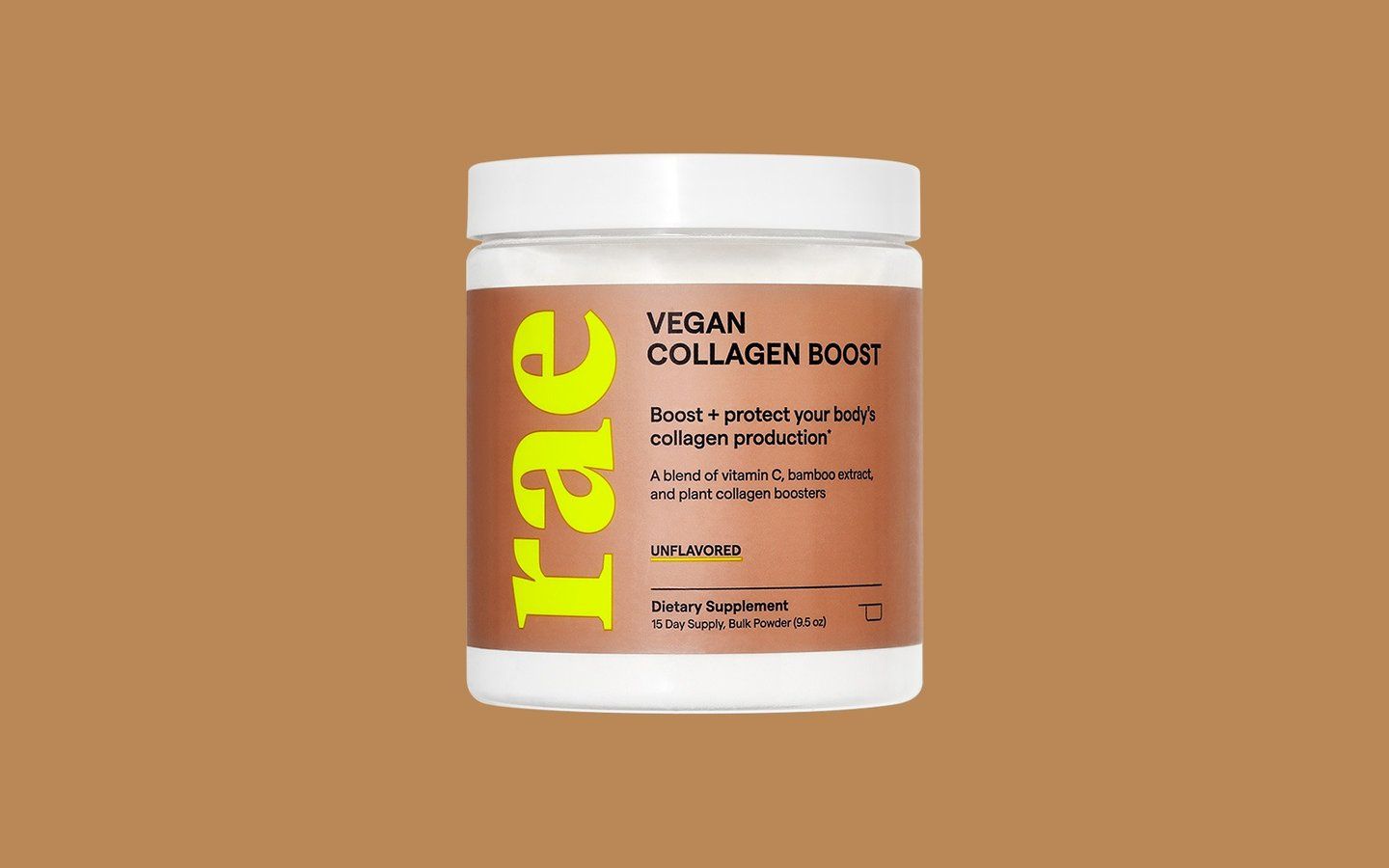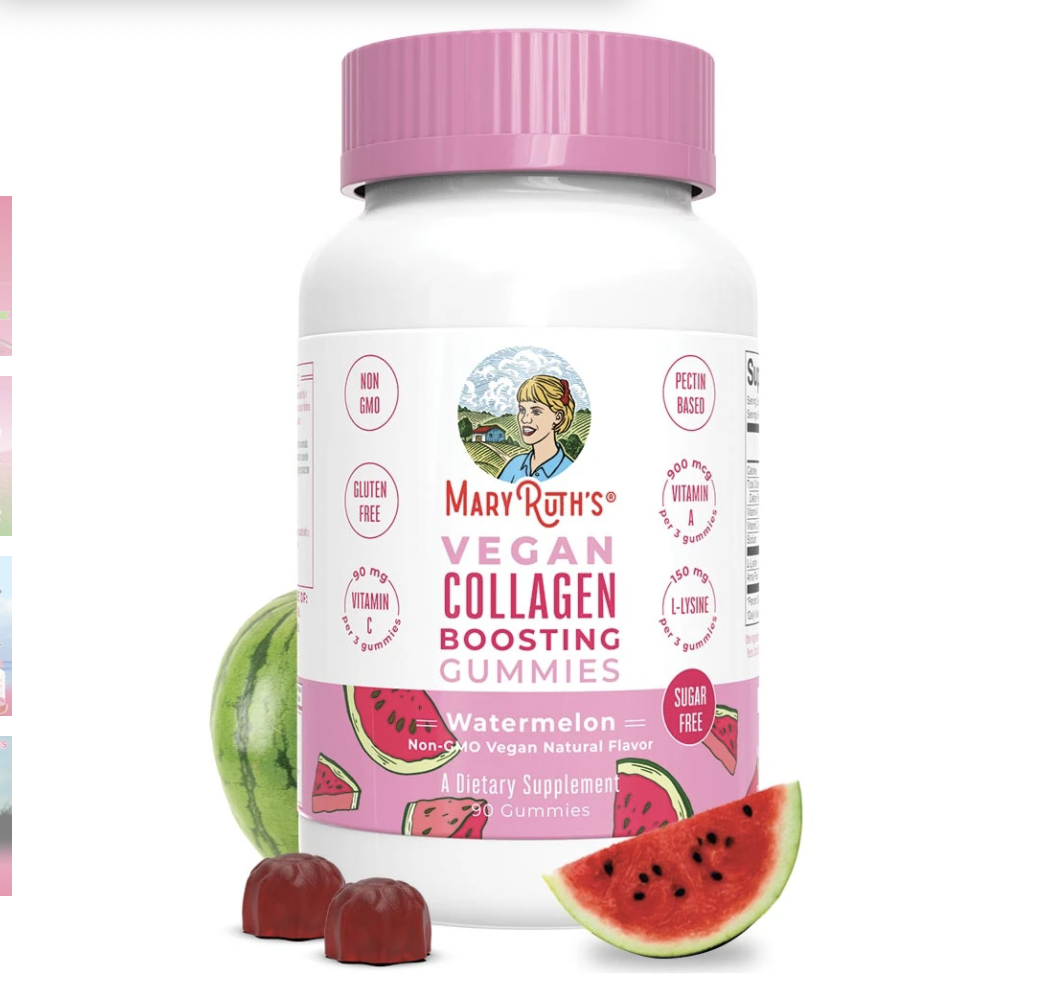There’s been a lot of talk in recent years about vegan and plant-based diets and how they can benefit our overall health as well as the planet’s. But while swapping cheeseburgers for Impossible Burgers and skim milk for almond milk (or whichever nut we’re milking now) is easy enough, finding suitable alternatives for your collagen supplements and skincare can feel like more of a challenge.
As a vital protein source for our bodies—and one that we produce less and less of as we age—collagen can help reduce wrinkles and skin sagging, and even improve the structure of our bones and ability to heal from an injury. “Collagen actually makes up about 80 percent of the total protein found in your skin,” explains naturopathic physician Dr. Tricia Pingel. “This means that if you don’t have enough collagen in your body, you’ll experience joint pain and discomfort and stiff muscles and tendons. Plus, you’ll show more signs of aging.”
It therefore makes sense that as our bodies’ own production of it slows down, we’d want to supplement it with external collagen. But, as Golde cofounder and CEO Trinty Mouzon Wofford points out, “typically, collagen supplements are derived from animal products, so you’re ingesting literal collagen, usually from beef or fish.” That doesn’t mean you have to sacrifice your vegan lifestyle just to keep your supple complexion intact though.
What is vegan collagen, and what is it made from?
“Contrary to popular belief, there is no natural vegan source of collagen. Collagen is 100 percent animal-based; however, our bodies create their own collagen, when given proper nutrition, and this is where vegan-based ‘collagen’ products come in,” Dr. Pingel says. So, although you may not be able to find pure collagen that isn’t animal-derived, you can boost your own collagen production from within by using plant-based ingredients.
“Unlike animal-derived collagen, plant-based collagen supplements (also known as ‘collagen promoters’) do not provide a direct source of collagen to the body,” notes Dr. Dendy Engelman, a board-certified dermatologist in New York City. “Instead, they are made up of ingredients that promote the body’s natural production of collagen—usually silica, phytoceramides, amino acids, minerals, and antioxidants, especially vitamin C since the human body naturally uses vitamin C to produce collagen.”
As the natural building blocks of collagen, these ingredients, when taken as supplements, will help boost collagen production in the body. “Think of it like giving someone the ingredients they need to make a recipe rather than cooking them the meal,” Dr. Engelman adds.
Since it’s a rich source of silica, bamboo is among the plants known to stimulate collagen production, which is why when Golde was creating its Coconut Collagen Boost, Mouzon Wofford was sure to incorporate it. “Bamboo is the world’s richest plant source of silica, a trace element that’s an essential building block for collagen,” she says. “As we age, our bodies produce less collagen over time, so giving your body a boost can strengthen your skin to increase elasticity and hydration.”
For anyone whose body can make collagen effectively, vegan collagen boosters will enhance that natural production by providing the necessary building blocks needed. “A 2015 study revealed that the vitamin C found in vegan collagen sources significantly induced collagen synthesis in women of all ages, but especially in those under age 50,” Dr. Pingel notes. “And not only does providing the body with the building blocks of collagen assist with collagen, but it also contributes to other areas of your health, including your immune system!”
How does vegan collagen compare to animal-derived collagen?
While animal-derived collagen provides collagen directly from the source, vegan alternatives can still have value. “Since plant-based collagen supplements cannot provide the body with a direct source of collagen—it can only promote the body’s production of it—it is generally considered less effective,” explains Dr. Engelman. “The blend of antioxidants, minerals, and amino acids makes a healthy supplement for your body, but it will not have as strong of an effect as animal-derived collagen since its efficacy depends on your body’s ability to take the collagen-stimulating ingredients and actually produce collagen with them (which depends on factors like age and individual metabolism).”
But these plant-based ingredients can be helpful in many other areas. “Because vitamin C, amino acids, and minerals are critical in many areas of your body for overall health, the vegan precursors actually can provide a greater benefit than animal-based collagen products and foods,” Dr. Pingel says. “Vitamin C, for instance, both supports many of the immune system’s cellular functions and strengthens your skin barrier by blocking environmental damage.” Plus, you can avoid the inflammatory effects that animal-based foods can have on the body.
What are some of the benefits of vegan collagen?
Because vegan collagen is formed from healthful plant-based ingredients, the benefits extend well beyond collagen production. In fact, according to Dr. Pingel, it can strengthen joints, muscles, and bones, increase energy, support the immune system, improve seasonal allergy symptoms, improve sleep, reduce anxiety, protect the liver, support wound healing, and of course, help slow the signs of aging—just to name a few!
How do topical and ingestible vegan collagens differ?
Although treating skin from within is a philosophy that only really extends to ingestible vegan collagen, there can also be advantages to using it topically. “It’s important to understand the distinction between plant-based collagen supplements (taken orally) and vegan collagen (currently only available as a topical formula that mimics true collagen),” Dr. Engelman says. “True vegan collagen is a newer development, and it’s comprised of plant protein fibers that together mimic the amino acids found in animal-derived collagen, meaning it can provide a direct dose of ‘collagen’ to the body.”
While more studies still need to be done, this variety of vegan collagen appears to be more promising than plant-based collagen promoters, but it is currently only produced as a topical product and remains expensive and unattainable for many. Meanwhile, options like Golde’s Coconut Collagen Booster and Grown Alchemist’s Dermal Smoothing are more affordable and accessible. “Both topical collagen and ingestible collagen have their pros and cons,” Dr. Engelman says. “Ingestible collagen is generally thought to be more effective, but it is also heavily dependent on the individual’s metabolism, age, et cetera.”
Where can you find vegan collagen?
Vegan collagen supplements will be labeled as such, and they will typically indicate that they’re comprised of vitamin C, amino acids, and other plant-based nutrients. But as Dr. Pinger notes, you can also find these ingredients (and their collagen-building benefits) in food. “Foods rich in vitamin C include citrus fruits, berries, garlic, kale, bell peppers, papaya, tomatoes, broccoli, Brussels sprouts, and strawberries,” she says. “Foods rich in the minerals zinc, copper, and silicon include pumpkin seeds, cacao, sesame seeds, spinach, almonds, cashews, chickpeas, oats, lentils, sunflower seeds, Swiss chard, spirulina, shiitake mushrooms, and figs.”
Source: Read Full Article
